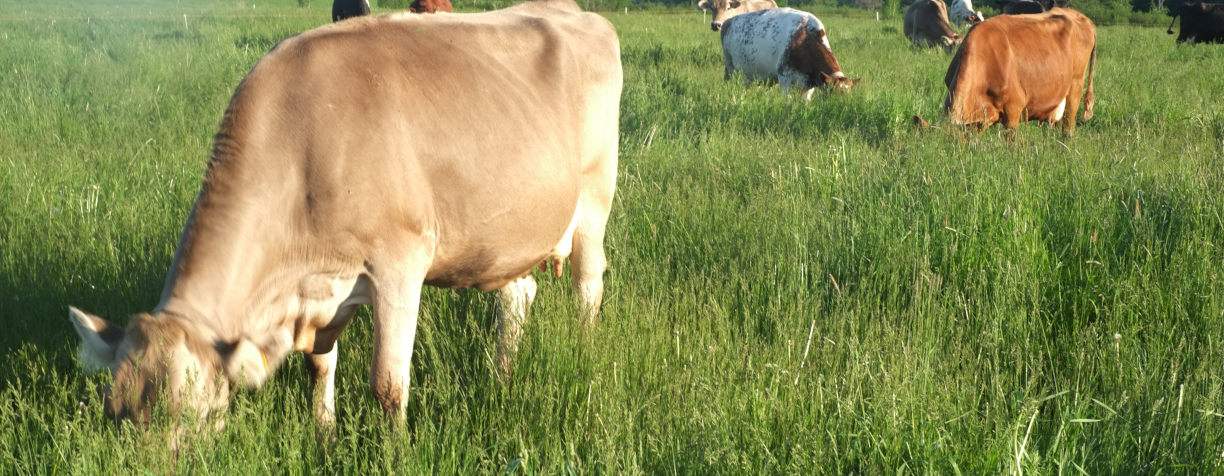National Sustainale Agriculture Coalition (NSAC)
In order to support the development of promising new conservation approaches, yesterday the US Department of Agriculture (USDA) announced that it will award more than $22.6 million in Conservation Innovation Grants (CIGs) to 33 projects that have demonstrated great potential in the advancement of resource conservation.
This year’s projects focus on: conservation finance, pay-for-success, water management, historically underserved populations, and data analytics. Nearly one third of the awards, with grants totaling more than $5 million each, are targeted towards underserved populations. USDA’s Natural Resource Conservation Service (NRCS), which administers the CIG program, has invested $286.7 million in 711 projects since 2004 through the program.
CIGs are a subprogram of the Environmental Quality Incentives Program (EQIP) , and they are specifically designed to fund innovative conservation projects promoting science-based solutions that benefit both farmers and the environment. Public and private organizations including state, local, and tribal governments, non-governmental organizations, and individuals are all eligible for the program.
The National Sustainable Agriculture Coalition (NSAC) congratulates all awardees on their success in a highly competitive program. In particular, NSAC would like to extend congratulations to our three member organizations that received CIG awards this year: The Maine Organic Farmers and Gardeners Association, Dairy Grazing Apprenticeship, and the National Center for Appropriate Technology.
Maine Organic Farmers and Gardeners Association (MOFGA)
MOFGA will work in cooperation with its new Maine Harvest Credit Project and NRCS to combine technical services support with lending capacity in an effort to promote environmental protection and conservation practices through the development of targeted loan products. The project will help support investments in conservation improvements by subsidizing loan costs (e.g., lower interest rates, paying closing and origination fees, etc.) for conservation projects. Additionally, the three-year, $600,000 grant award will enable MOFGA to work jointly with NRCS to field test the Resource Stewardship and Evaluation Tool (RSET) to determine the tool’s effectiveness in developing a conservation plan that best meets farm goals and identifies the best conservation practices to be used on individual farms.
“The 2017 CIG National Funding awards announced today will join two areas identified by the farming community to assure successful farming operations: access to credit and technical assistance. The grant will allow MOFGA and the new Maine Harvest Credit Project to assist farmers in a project designed to promote environmental protection through the development of specialized loan products, which stimulate and reward conservation practices. We look forward to working with the credit project and with the NRCS office in Maine to ensure a healthful environment and stronger family farms,” said Dave Colson, MOFGA’s Agricultural Services Director.
Dairy Grazing Apprenticeship (DGA)
DGA will work with historically underserved populations in the Great Lakes Region on apprenticeships that will foster skills in innovative managed grazing. DGA is two-year accredited National Apprenticeship that provides employment, mentorship, comprehensive training in all aspects of owning and operating a managed-grazing dairy operation, peer to peer discussion groups with local agricultural professionals, and other tools to help dairy graziers advance their careers.
“Dairy Grazing Apprenticeship is excited to work with NRCS to foster conservation management among underserved beginning farmers in the Great Lakes region,” said Joe Tomandl, DGA Executive Director. “We really appreciate the positive impact that the NRCS Conservation Innovation Grants program has on agricultural lands by funding so many great projects.”
The National Center for Appropriate Technology (NCAT)
NCAT’s CIG award will help the organization to prevent soil erosion in the Lower Rio Grande Valley by ensuring soils are not left bare in the summer. NCAT will work with underserved, predominantly Hispanic, populations to increase education in sustainable soil management, with a particular focus on cover cropping and reduced tillage. This will be done through field demonstrations on certified or transitioning organic row crop farms, technical assistance, and knowledge transfer.
“We are excited about doing research and education on cover crops and reduced-tillage in the Rio Grande Valley of Texas. In this area, crop fields are almost universally left bare during the summer months, and it’s common to see winds stirring up large dust clouds and blowing away topsoil,” explained Mike Morris, NCAT Southwest Regional Office Director. “Most work on cover crops and reduced-tillage has been done in areas with cool climates, and research is badly needed on how to adapt these methods to subtropical conditions.”


